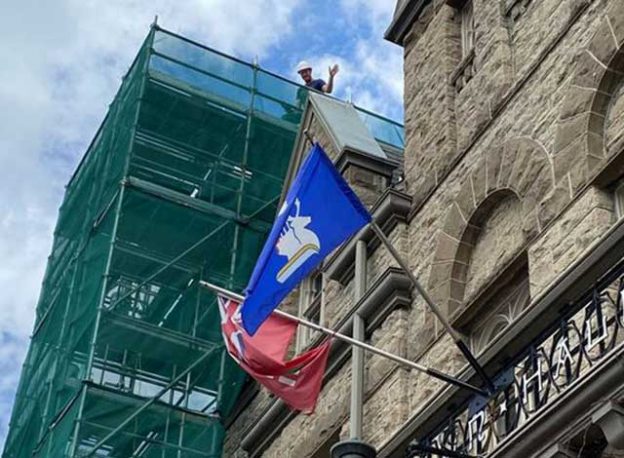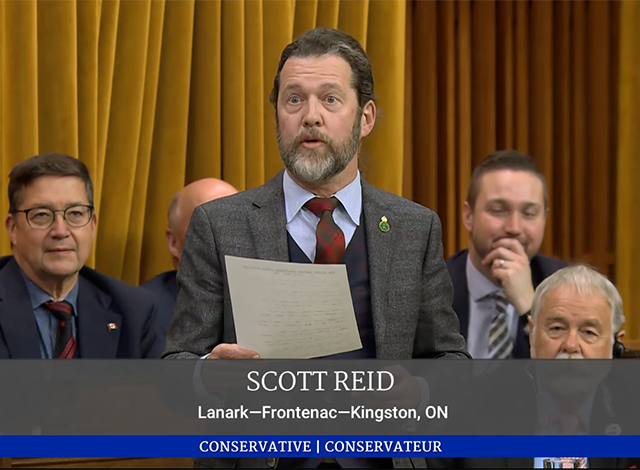It started with a recent post on a social media account for Carleton Place’s BIA; a picture of Carleton Place councilor Andrew Tennant repairing the stone work high up on the town hall building. That one image sparked some questions. Was he volunteering? Or was he getting paid? If it was a paying job, how did an elected official land a contract with their own municipality?
Hometown News connected with first-term councilor Tennant who confirmed his company was awarded the contract for the work earlier this year. He added that he had done masonry work for the town before being elected and asked town staff if his company could continue to bid on municipal work after he won his seat and was told he could. He told us that he wasn’t permitted to disclose details of the contract or the bid process but referred us to Joanne Henderson, the town’s manager of recreation and culture. Henderson noted that the need for repairs was first noticed last fall and that the town engaged John Cooke and Associates to oversee the project. The town maintains a reserve fund for the building and adds approximately $60K to it each year to keep up with routine maintenance and repairs.
The town’s CAO, Diane Smithson provided a statement that Cooke and Associates were responsible for the tender process including preparing and issuing the tender documents and the contract for work. The total amount budgeted for this project was $230K and six bids were received by the tender deadline:
- Castle Masonry – $201,124.00 (Tennant’s company)
- MH Stoneworks – $262,920.35
- Solid Masonry Heritage – $319,069.00
- Keystone Traditional Masonry $326,900.00
- Atwill -Morin – $362,191.00
- Lari Construction – $460,400.00
“The work involves repairs to the chimney, partial re-pointing of the west wall, stone repairs, flashing repairs and replacement of some slate tiles. This was a budgeted item and staff has delegated authority to award tenders when they are within the budgeted amount and awarded to the lowest bidder.
Under the Municipal Conflict of Interest Act, it is the duty of each councilor, and not Staff to determine whether they have a direct or indirect pecuniary interest and to comply with the Act. If a Councilor deems they have a pecuniary/conflict of interest, they are required to disclose the nature of the interest prior to any consideration of the matter at a meeting and not take part in the discussion or vote on the matter, nor to attempt in any way before, during or after to influence the vote.”
But because this project was approved by staff, it did not come to council for consideration or a vote.
Hometown News reached out to a major Toronto law firm that deals with Municipal Act issues and was told that there’s nothing that prohibits a member of council from bidding on or getting contract work from a municipality provided the member does not become an employee of the municipality. And that since the contract was not voted on by council; the Municipal Conflict of Interest Act is not engaged. Provided the member did not use the influence of their office to affect the decision of staff to award the contract the Municipal Conflict of Interest Act is similarly not triggered.
The tender quotes show that the town saved over $60K by awarding the job to Tennant.























